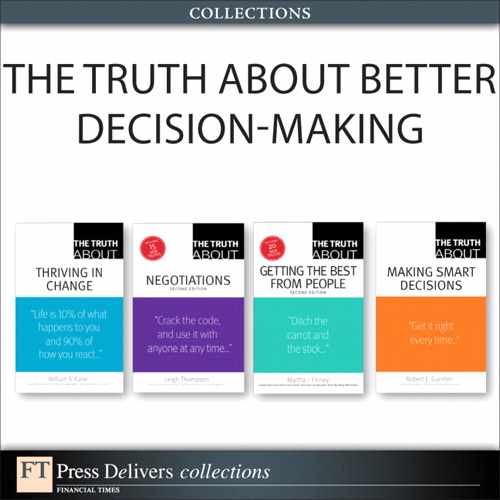Truth 36. Break free from the prisoner's dilemma
You and an accomplice are arrested for robbing a bank and are held in separate cells. You can't talk to one another. You have hidden the loot, so the prosecutor doesn't have enough to put either of you away. He offers each of you an attractive deal: Turn on your accomplice, and you will go free (and be able to grab all the loot for yourself). If you remain silent and your accomplice rats you out, however, you will get ten years. If you both remain silent, however, you will both go free (and split the loot). You can't talk to one another. Should you betray your accomplice?
This is the prisoner's dilemma. If you can't trust your accomplice not to sing, the best course for both of you individually is to betray the other. If you remain mum, you could face ten years if your partner squeals. And this is what he would rationally do. The best outcome for everyone collectively is to keep quiet. But the rational move individually is to betray the other.
We can see this in geopolitics where arms races start because neither side can trust the other to stabilize or reduce its levels of armaments. This dynamic can also be seen in price wars where neither side can trust the other to back down. This leads to escalation that might be rational in the individual analysis but leads to an irrational result overall because everyone is worse off in the long run than if they cooperated.
In the classic game, there is no way for the two sides to break free because they can't communicate with one another. In the real world, there usually are opportunities for the two sides to communicate with one another—as was done in the SALT talks during the Cold War—but only if they can recognize that they face a prisoner's dilemma. Are you in a situation where you're better off cooperating than maximizing your own returns separately? Look for opportunities to cooperate either through direct communication or, if this is not possible (for example, if discussing price may lead to charges of price fixing) through signaling your intention to the other party.
When the dilemma is repeated over several rounds with the same players, those that cooperate do better. Nice guys do finish first. It may mean that enlightened players will choose this course on the first round, assuming their partners are also similarly enlightened. But few prisoners may be willing to stake their lives or freedoms on this.
When facing a decision involving others, don't just look for the solution that maximizes your own return. Look at the bigger picture and find a broader solution that produces the best return for everyone. And then look for ways to encourage cooperation. This may be the best way to break out of prison and create a better solution.
